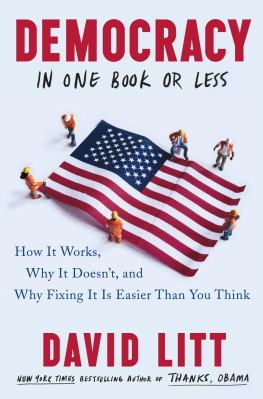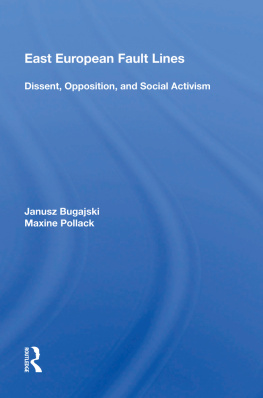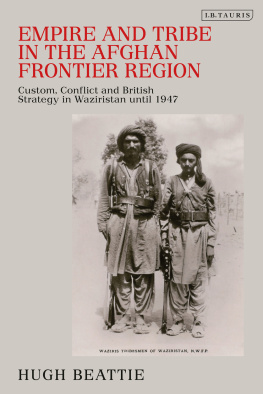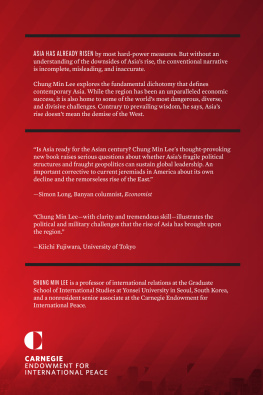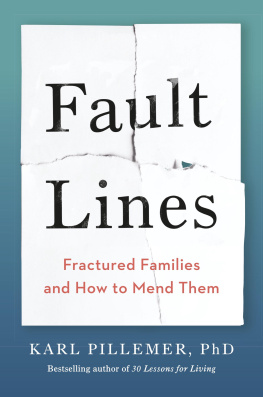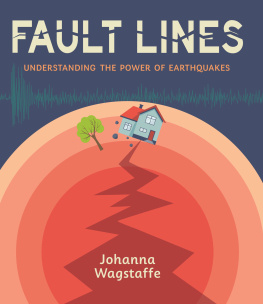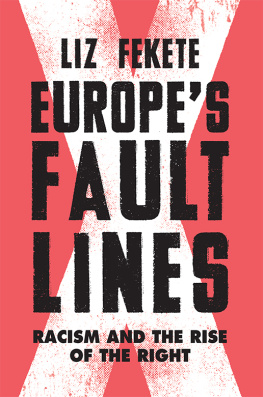I am prowling outside Mitch McConnells former frat house, which until fifteen minutes ago seemed like an excellent idea.
My plan is as follows: fly to Louisville, Kentucky; crash a party at Phi Tau, the old stomping ground of Americas most powerful senator; win the trust of fraternity brothers; and uncover the secret of our democracys deterioration, preferably by stumbling across an artifact or shrine. To that end, Ive come up with a backstory (alumnus in his early thirties, in town on work travel) and put an ungodly amount of product in my hair. I arrived at the University of Louisville ready to party.
There was just one problem: no partying was taking place. On a Friday night less than twenty-four hours before commencement, campus was a ghost town. Passing by Delta Zetas pristine flower bed and Beta Pis unmolested dragon gargoyle, I found myself sincerely wondering whats happened to kids these days.
Phi Tau occupied Greek Rows prime real estate, a spacious corner lot, and at first appeared more promising. While the red brick building was clearly new, or at least expensively refurbished, the wraparound porch was decorated in classical Greek style: broken sofas, empty beer bottles, a well-loved propane grill. The remains of a mistreated armchair were arranged in prime lounging position on the roof.
Even so, the lights were off in the windows. No party. Nothing to crash.
And now Ive spent a quarter of an hour peering through the front door of the two-story mansion. After a while I spot a pair of Phi Taus chatting in the hall, and I briefly consider knocking and telling the truth. But what could I say?
Hi there. I used to be a speechwriter for Barack Obama, and Ive become quite certain that rescuing American democracy begins with me getting drunk at an organization once home to his political nemesis, which is why Im here on a pilgrimage that is also technically, a business trip. Can I come in?
Such a plea, while honest, would likely be ineffective. I contemplate breaking and entering, but now that my twenties are behind me thats outside my comfort zone. Still, Im determined to leave Louisville with something to show for my travelssome deeper understanding of what has happened to my country and what it means for our future. I take a deep breath, reassess my situation, and devise a new, far more sophisticated plan.
I start skulking around.
* * *
Remember Schoolhouse Rock!? I say. This is back in D.C., and Im not really asking, just changing the subject, the way I might say, Remember Grandpa? to a cousin. But Trent, the Capitol Hill intern who has asked to get coffee with me, doesnt understand my questions rhetorical nature. Where I expect a nod, I get a look:
I am confused right now, but my confusion is sad for you and not me, because I am young and you are old.
I know that look. I remember giving it. And finding myself on the receiving end, I begin to panic. You know? The song? Im Just a Bill? Remember?
Trent is the kind of eager nineteen-year-old who thrives in Washington. He carries a leather folder with a built-in legal pad upon which he has written questions in advance, and he wants more than anything to make a good impression. But Ive given him no choice. Grimacing, he shakes his head, which is how I learn I might be the last of the Schoolhouse Rock! generation.
But if youre of a certain age (which I hasten to point out is still most of them), that show defined democracy. My grandparents owned a VHS of the childrens cartoon, and whenever we visited, Id pop the tape into the VCR, press play, hit rewind, and then watch it again.
For the handful of you too young to know what most of those words mean, heres a synopsis of Im Just a Bill, the shows most enduring segment: A homeless talking scroll befriends a male human child. Via song, the bill, whose name is Bill, explains our political process. Bill the bill started out as an idea held by the American people. A legislator wrote him into existence and brought him to the Capitol. If hes rejected, he will literally die. But if Bills debated in committee, approved by the House and Senate, and signed by the president, hell become a law.
Gee, Bill, you sure have a lot of patience and courage! exclaims the boy. The song ends with Congressman McCoy, a portly lawmaker in a 1970s-style brown suit with wide lapels, waddling down the Capitol steps and announcing that Bills been signed.
Oh yay-us! squeals Bill. As a singer, Bill has a vaguely bluesy voice, but when speaking, he sounds like a cowboy who is also a drag queen. In retrospect, this was one of several strange elements of Schoolhouse Rock!
Yet sitting on my grandparents shag carpet, I happily overlooked any oddities, vocal or otherwise. Like the millions of American children who have sung along to Im Just a Bill since it first aired in 1976, I was too busy rooting for the protagonist. It would be more than a decade before I cast a ballot, but Bill I could relate to. Here was this endearing little guy, full of charm and potential, determined to win over adults on his way to growing up.
And even if I couldnt yet articulate it, I could appreciate that the true hero of Bills story was the very system of government he described. In other countries, citizens lives were governed by a kings dictates or an aristocrats whim. In America, we too had leaders, but we ruled ourselves. This was not a typical arrangement. Back when I sat in my grandparents living room, eyes glued to the TV, fewer than half the worlds people lived in a democracy. If you considered the full scope of history, all 105 billion human beings who had ever existed, that number fell to well below 5 percent.
But as an American, I was different. I was special. A working political process, one designed to turn the peoples will into reality, was my birthright.
For the first few years of my own intersection with American history, our real-life system of government mirrored the one Bill sang about. In November 1986, six weeks after I was born, President Reagan signed sweeping, bipartisan immigration reform into law. When I was four years old we fought a war in Iraq for understandable reasons, won it decisively, and left on time. Under President Clinton we raised taxes on the rich, the economy boomed, and Americans of every income bracket saw their fortunes rise.
I dont mean to suggest that our republic made exclusively good decisions. Some ideas led to unintended consequences; others were just plain awful. But our democracy functioned. Most of us got the government we wanted most of the time, and when we were no longer happy with our leaders, we replaced them. That was the true promise of Americanot perfection, but constant improvement. What made us great was that we could always make things better. As a child, I found it all immensely appealing: my country and me, brimming with patience and courage, growing stronger all the time.

